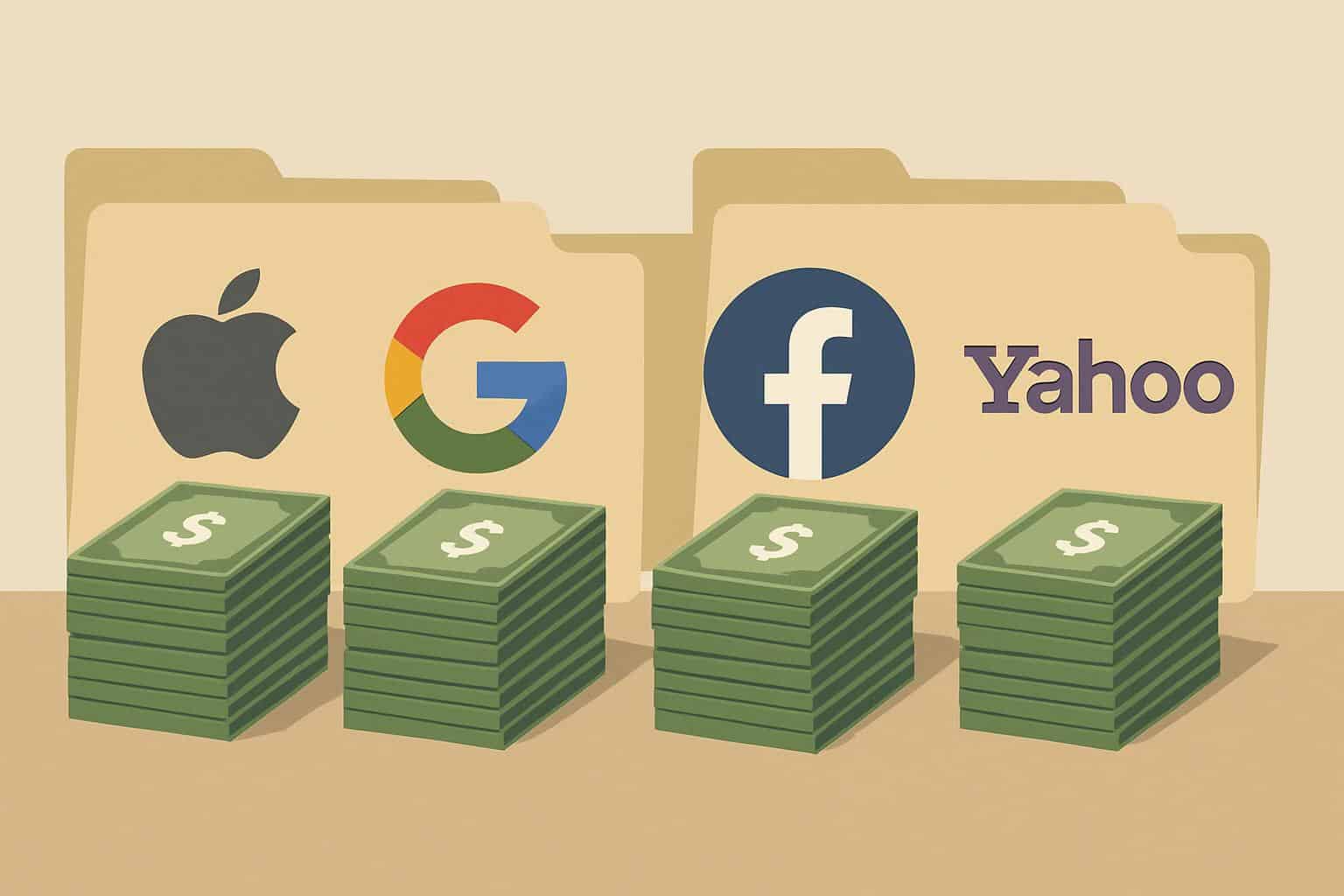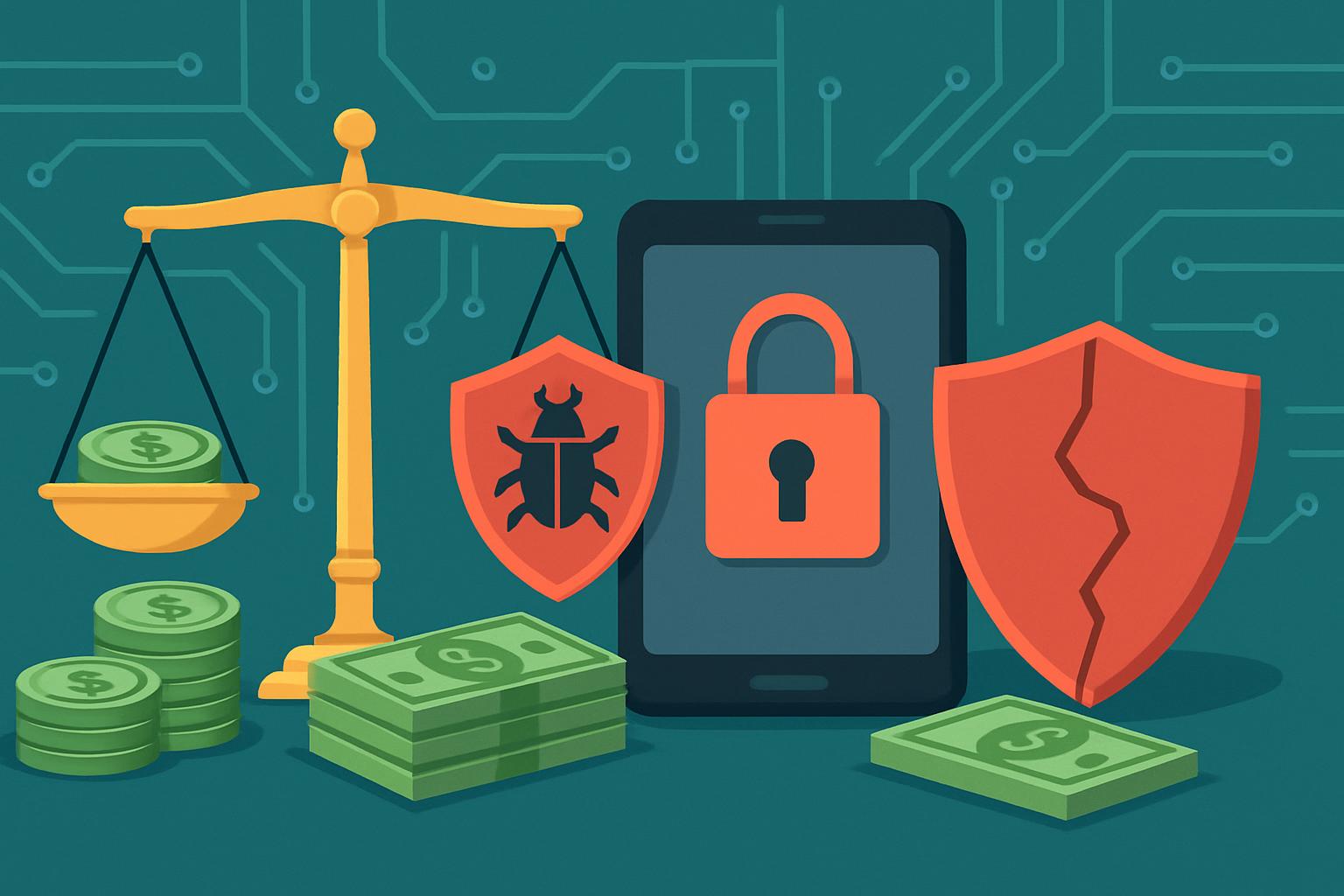Privacy lapses, data breaches, model mishaps and more are hitting tech companies where it hurts — the bottom line.
And if you’ve used a popular platform or service, you could be entitled to money from newly reached class-action settlements or cases recently resolved through proposed deals waiting to work their way through the legal system.

Here are four multimillion settlements that either gave money and/or are waiting on final approval. For each, we detail who may be eligible, what the payouts would look like, and what you should do to make a safe claim — and to avoid scams.
What to know about the AT&T data breach settlement
AT&T has agreed to settle consolidated litigation over a series of data breaches with a fund of around $177 million, according to court filings and company statements. The settlement claims the affected individuals are current and former customers whose sensitive data were leaked in breaches connected to third-party compromises and credential stuffing attacks.
Eligibility typically applies to those who received a notice that their information may have been affected. Benefits usually consist of payment from the General Fund, reimbursement for documented losses that were non-reimbursed out-of-pocket, and time spent rectifying identity theft complications in tandem with credit monitoring. The individual per-person amount will depend on the number of valid claims submitted and the losses verified, according to the consent judgment.
Watch for an official email or mailed notification from the court-appointed administrator. If you believe you are affected and have not received any notice, visit the official claims site for this settlement as described in court documents or AT&T’s public notices. Confirm any message before responding — though consumer advocates such as the Federal Trade Commission say fraudsters have even sent fraudulent settlement emails in an attempt to scoop up personal data.
Facebook user privacy settlement: who gets paid and when
A federal judge gave final approval to a $725 million settlement to end claims that Facebook shared user data with third parties, including consultants who worked on President Trump’s 2016 campaign, without users’ consent. Payments started to be issued in a series of disbursement rounds, handled by a court-appointed firm, and more rounds are expected as the process moves forward.
Payouts are issued only to individuals who submitted a valid claim by the date that the suit was filed. The formula depends on how much time you held an account in the covered period, so the amounts differ dramatically. Early beneficiaries say they have received only relatively small sums — not surprising, given the giant size of Facebook’s user base and the number of claims involved — with some users still awaiting word on their challenges or appeals.
If you filed, look for a payment notice that says whether the funds are to be delivered by direct deposit (or prepaid debit card) or by paper check. If you didn’t submit a claim, there is nothing more to do for this matter.

Amazon Prime Sign-Up Practices Settlement
Amazon has agreed to pay roughly $1.5 billion to an estimated 35 million customers after litigation brought against it alleged the company had deliberately used “dark patterns” to subvert its own Prime service sign-up process and make the subscription cancellation process more opaque and labyrinthine than it should have been. The settlement comes after regulatory action, including an allegation by the F.T.C. over designs for enrolling people and canceling.
Eligible if you enrolled in Prime through the challenged flows or faced friction when attempting to cancel during the covered period. Some customers will receive automatic credits or refunds, according to case materials, and others will be sent claim forms to verify their eligibility. The claims administrator will detail whether payments arrive in account credits or cash-style disbursements.
Like any large consumer settlement, you can anticipate a simple claim form, a brief declaration about your experiences and a clear deadline. If you receive a request for passwords or multi-factor codes that does not appear to be on your own actions, then you should suspect something.
Anthropic authors copyright settlement and eligibility
The A.I. company Anthropic has reached a preliminary settlement in which it would pay $1.5 billion to resolve claims by authors that their books were used without permission to train massive language models, leading author groups said the disputes revolved around datasets like Books3. The judge handling the matter has expressed concern about some of the terms, so final approval is not assured.
This agreement is not some sort of sweeping consumer payout. Those who may have a financial interest in the case include authors that fall within the defined class members (usually comprising works that appear in the offending datasets, or persons able to attest to their inclusion). Authors who wish to check their potential eligibility can access resources, such as publicly available lists maintained by reputable organizations and news sources (for example, The Atlantic’s searchable database of Books3 titles) in order to collect registration records, ISBNs, prior publishing contracts.
How To Claim Safely And Maximize Your Payout
Always verify the official claims website by comparing the notice you receive with court documents or with the name of a claim administrator that appears on them. The F.T.C. and state attorneys general frequently alert consumers about phishing scams that try to impersonate actual settlements; do not pay a fee to file a claim, and never provide account passwords.
File early, keep every copy of anything ever sent to you, and document any expense or time related to a breach or subscription dispute — those are the details that can increase your refund. Funds can be received through ACH, prepaid card, paper check or account credit. Some settlements can carry tax implications, so hold on to these confirmation emails and consult with a tax professional if your payout is large.

